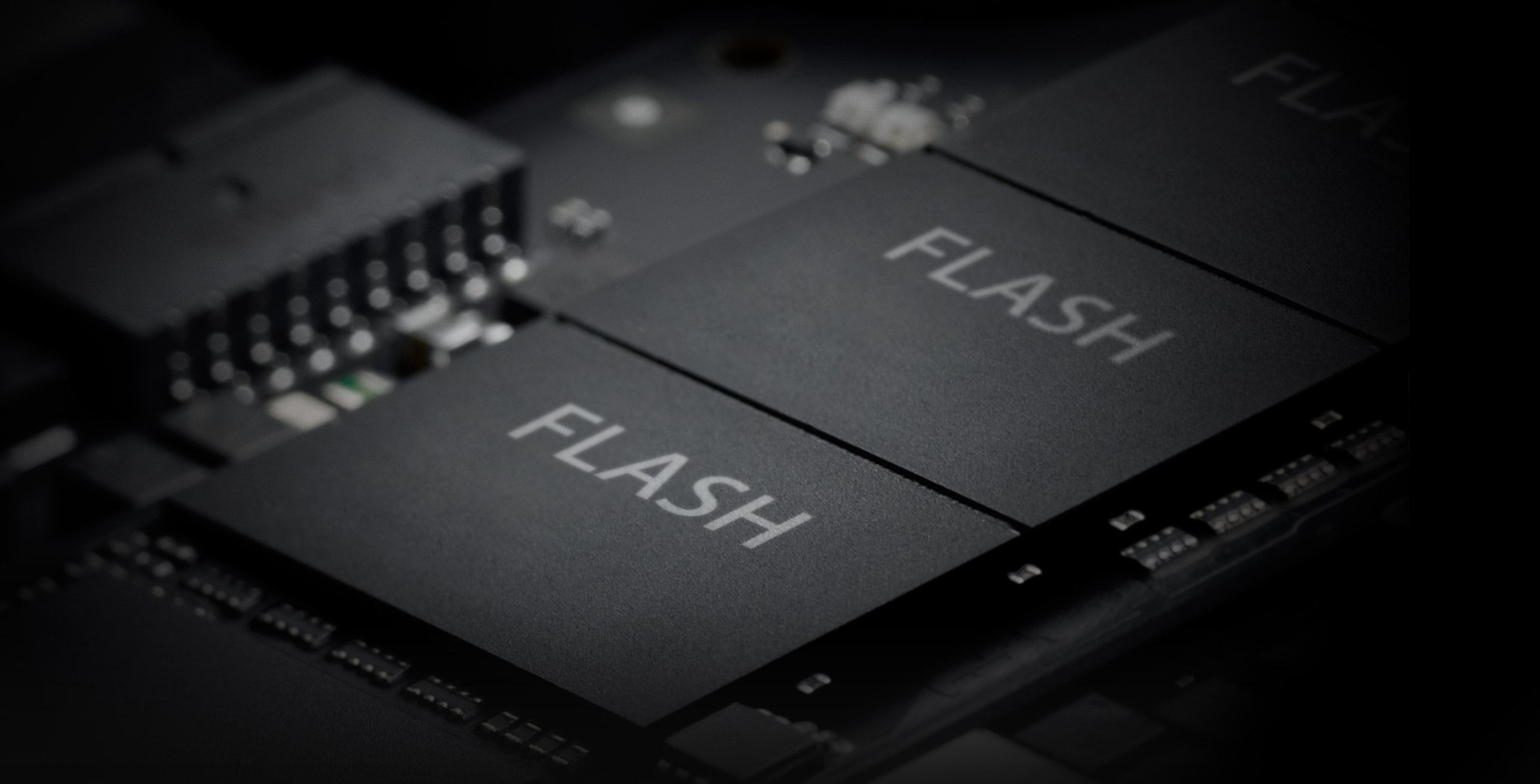Apple supplier SK Hynix unveiled 72-layer, 256-gigabit (Gb) 3D NAND flash memory chips based on triple-level cell arrays. By stacking 1.5 times more cells than the company’s previous 48-layer technology, a single 256Gb NAND flash chip can represent 32 gigabytes of storage with two times faster internal operation speed and twenty percent faster read/write performance than a 48-layer 3D NAND chip.
The supplier has been making 48-layer 256Gb 3D NAND chips since November 2016. Their previous 36-layer 128Gb 3D NAND chips launched in April 2016.
Its latest chips achieve approximately 30 percent more manufacturing productivity by stacking more cells and utilizing existing mass production facilities. SK Hynix will produce them in volume in the second half of this year.
The NAND flash chips onboard the iPhone 7 and iPhone 7 Plus models are dual-sourced from Toshiba and SK Hynix, with some iPhone 7 models featuring Toshiba’s 48-Layer 3D BiCS NAND chips that have never been seen previously on a commercial product.
Other iPhone 7 models utilize SK Hynix’s flash chips.
It’s been discovered that the flash storage performance of the 32-gigabyte iPhone 7 model is slower than that of its 128-gigabyte version, with the former reading data at 656 Mbps and the latter at 856 Mbps. The difference is more pronounced when testing the write performance: the 32GB iPhone 7 for writes data to its flash chips at about 42 Mbps, while its 128GB counterpart is over eight times faster, at 341 Mbps.
The difference is attributed to Toshiba’s 3D BiCS NAND technology used in the 128GB iPhone 7 model. BiCS, or Bit Cost Scaling, stores three bits of data per transistor and stacks 48 NAND layers onto a single die, bringing accelerated read and write performance compared to 2D memory.
Both Toshiba and SK Hynix flash chips used for the iPhone 7 family are fabricated in 15-nanometer process technology. The 256-gigabyte iPhone 7 models use a thinner eight-die stack of 256-gigabit dies versus a 16-die stack of 128-gigabit NAND flash parts.
SK Hynix is among the bidders for Toshiba’s lucrative flash chip unit.
Source: DigiTimes
